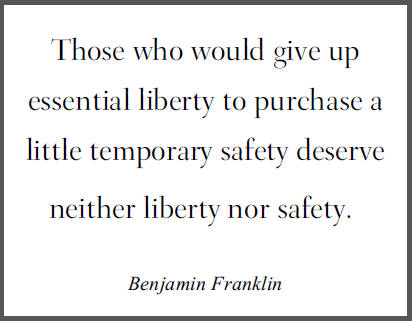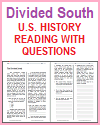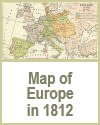"Those who would give up essential liberty to purchase a little temporary safety deserve neither liberty nor safety," Benjamin Franklin. Click here to print.
Click here to visit the main page for free printable quotations.
The balance between liberty and safety is a fundamental issue in governance and society, necessitating a careful equilibrium to ensure both individual freedoms and collective security. Liberty, the freedom to act, think, and express oneself without undue restraint, is essential for personal autonomy and democratic principles. Safety, on the other hand, involves protection from harm and the assurance of public order, which is crucial for a stable and functioning society.
Striking the right balance requires policies that protect citizens while preserving fundamental rights. Excessive emphasis on safety can lead to authoritarianism, where liberties are curtailed in the name of security. Examples include invasive surveillance, unjust detentions, and restrictions on free speech. Such measures can erode trust in government and stifle democratic engagement.
Conversely, prioritizing liberty without adequate safety measures can result in chaos and vulnerability to threats such as crime, terrorism, and public health crises. Effective governance requires implementing safeguards that do not disproportionately infringe upon personal freedoms. This includes transparent laws, judicial oversight, and accountability mechanisms to prevent abuse of power.
Public discourse and democratic processes play a crucial role in maintaining this balance. Citizens must be informed and engaged, advocating for their rights while understanding the necessity of certain restrictions for the common good. Continuous dialogue between the government and the public helps adapt policies to changing circumstances and ensures that both liberty and safety are upheld.
In essence, the balance between liberty and safety is dynamic and context-dependent, requiring constant vigilance, ethical governance, and active civic participation to achieve a harmonious and just society.
|













